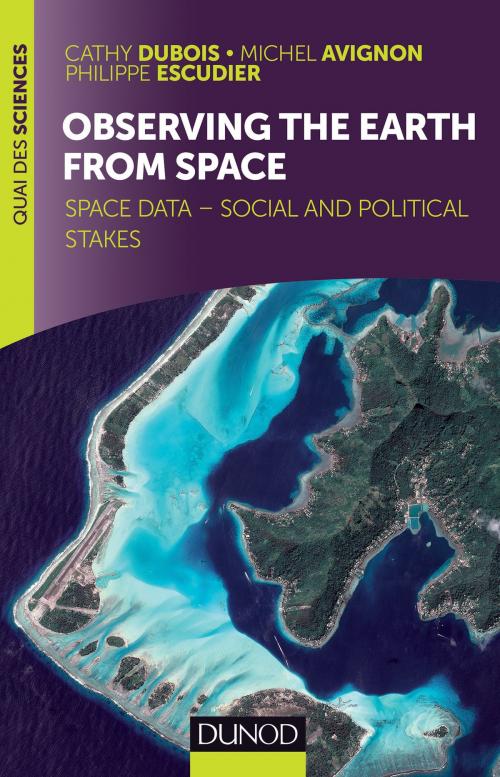Observing the Earth from space
Space data - social and political stakes
Nonfiction, Science & Nature, Science| Author: | Cathy Dubois, Michel Avignon, Philippe Escudier | ISBN: | 9782100717682 |
| Publisher: | Dunod | Publication: | June 11, 2014 |
| Imprint: | Dunod | Language: | French |
| Author: | Cathy Dubois, Michel Avignon, Philippe Escudier |
| ISBN: | 9782100717682 |
| Publisher: | Dunod |
| Publication: | June 11, 2014 |
| Imprint: | Dunod |
| Language: | French |
Breaking free of the Earth's surface to look down from above is longer a mere dream. Sophisticated instruments flown on satellites produce streams of data that, when inserted into complex information processes, increase our knowledge of the Earth system. Satellites have now revealed the limits and potential of our planet by making them “visible”.
This book describes how satellite observation offers unique support in fields such as the management of natural environments, risk prevention and post-disaster management. Beginning with an historical review it then traces how data are constructed from the initial conception of measurements to their interpretation for use in operational systems. Ongoing sociological surveys sketch-out some of the difficulties to be overcome to allow more widespread use of satellite data. With the help of concrete examples such as emergency mapping for disaster management or monitoring of water resources, readers are shown how space-based observation offers potential cognitive resources for living on Earth while taking care of it.
Breaking free of the Earth's surface to look down from above is longer a mere dream. Sophisticated instruments flown on satellites produce streams of data that, when inserted into complex information processes, increase our knowledge of the Earth system. Satellites have now revealed the limits and potential of our planet by making them “visible”.
This book describes how satellite observation offers unique support in fields such as the management of natural environments, risk prevention and post-disaster management. Beginning with an historical review it then traces how data are constructed from the initial conception of measurements to their interpretation for use in operational systems. Ongoing sociological surveys sketch-out some of the difficulties to be overcome to allow more widespread use of satellite data. With the help of concrete examples such as emergency mapping for disaster management or monitoring of water resources, readers are shown how space-based observation offers potential cognitive resources for living on Earth while taking care of it.















